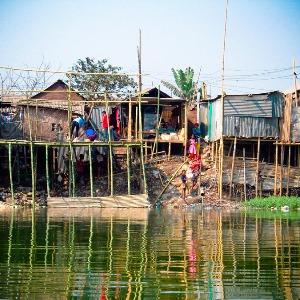
Adaptation 2018
Climate change is a global problem whose challenges will be met at local, regional, and international levels. Impacts include changes in precipitation, heat waves, increased magnitude of extreme weather events and disaster intensity, increased flooding, reduced fresh water resources, sea level rise, changes in disease patterns, food scarcity, and more. For example, even if we were able to aggressively reduce global greenhouse gas emissions, mean sea levels may rise between 26 - 54 cm by 2100, and many projections are higher (IPCC, 2013). Mean global surface temperature is also likely to increase by 2 - 5 degrees Celsius above pre-industrial levels, causing an acceleration of the hydrologic cycle, and an exacerbation of precipitation extremes. The impacts of climate change will increasingly affect plant, animal and human life. This contest seeks to explore innovative institutional, educational, financial, and other means by which we can increase global and local preparedness for climate change on both domestic and international scales.